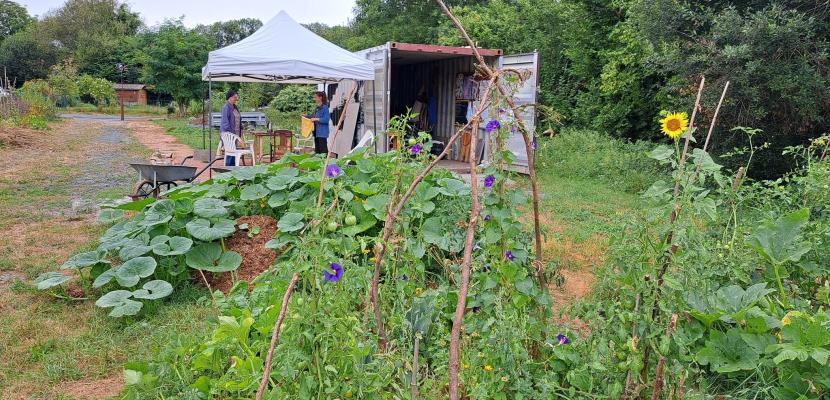
The Garden of the Commons : community garden in a small rural town

About this good practice
The Garden of the Commons is a shared, educational, and inclusive space, recognized as a “Social Living Space” and a third place for collective experimentation of the common good. Located near Gueret city-center, it brings together a shared garden, a semi-natural meadow, and a wooded wetland crossed by the Chers stream. This mix of urban proximity and natural richness makes it a unique and accessible setting for community engagement.
Even in small rural towns, many people face precarity, isolation and have limited access to nature. The garden helps bridge that gap.
It aims to empower locals, build skills in gardening and ecology, and to bring Elinor Ostrom’s vision of the commons to life in tangible ways. Twice a week, open activities invite people of all ages to garden, build, share seasonal moments, and co-create the site’s evolution. Specific tools are developed to facilitate collective decision-making, which is at the heart of how the space is designed. The garden also regularly hosts local organizations and encourages encounters among diverse groups.
Monthly workshops led by the team or invited experts offer hands-on learning in topics such as living soil practices, biodiversity, composting, and cooperative gardening.
In 2024 it organized 86 activity days with 680 participants, 16 workshops, 21 group visits, and several community events. A second staff hire enabled new developments and boosted the garden’s role as a space for environmental education and social inclusion.
Resources needed
• Land (urban or peri-urban)
• community support
• Funding (public and/or private)
• Basic tools and infrastructure
• A small team or volunteers partnerships with local groups. Key: a shared vision, inclusive activities, and care for people and nature.
Evidence of success
- In 2024 : 86 activity days with 680 participants, 16 knowledge-sharing workshops, 21 group visits.
- Many partners among local associations
- Various opportunities for development, such as projects with local schools and the development of shared gardens in the city centre
Potential for learning or transfer
This initiative offers valuable lessons in sustainable gardening, soil care, biodiversity, and ecological practices such as composting and water management. It also develops hands-on experience in participatory governance, where community members are encouraged to get involved in the garden’s development. The project teaches collaboration, conflict resolution, and decision-making in a shared space, while applying Ostrom’s principles of the commons: the association's team, participants and local partners work together to organize community events, foster inclusion, and manage natural resources collectively, with the support of local authorities. The project serves as a model for integrating environmental education and social cohesion, showing how underutilized urban or rural spaces can foster local communities empowerment and create lasting, positive change. This approach offers transferable skills in ecological stewardship, social solidarity, leading to community-driven development.
Further information
Good practice owner
You can contact the good practice owner below for more detailed information.